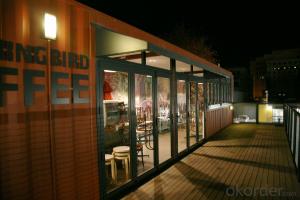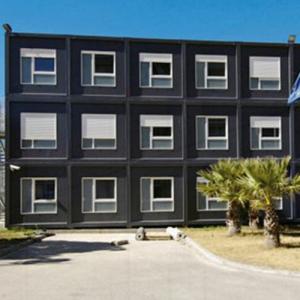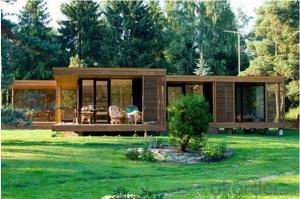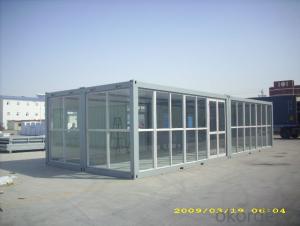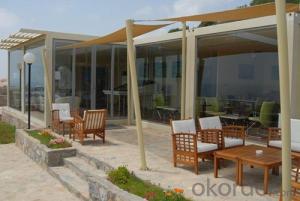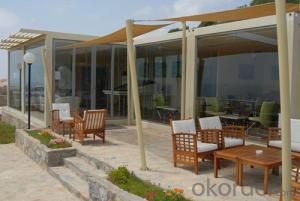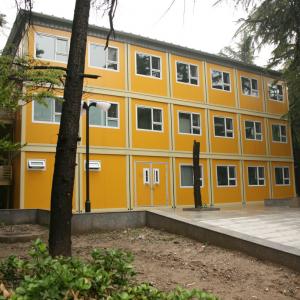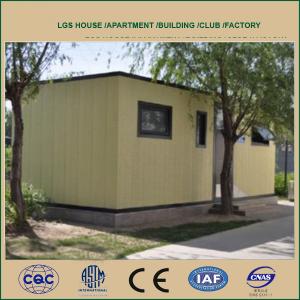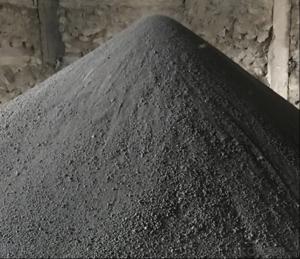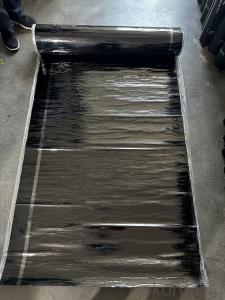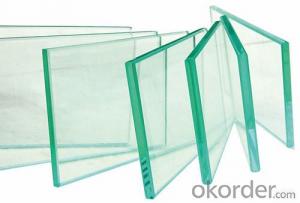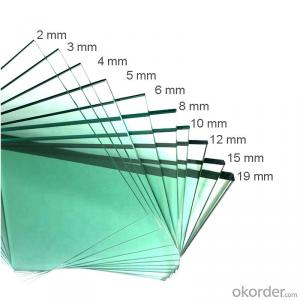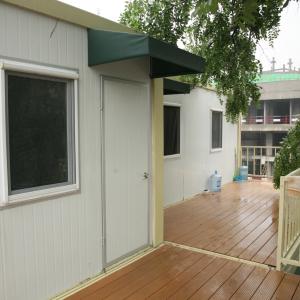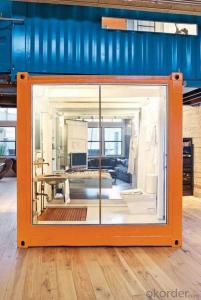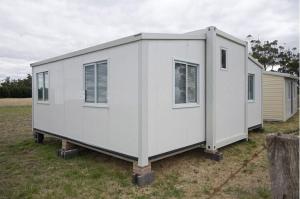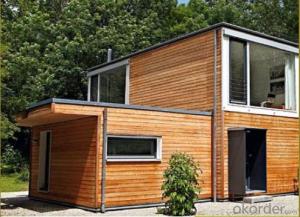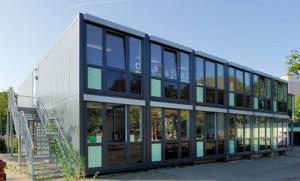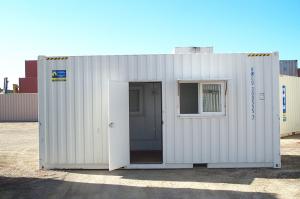Container house for coffee shop
- Loading Port:
- China Main Port
- Payment Terms:
- TT OR LC
- Min Order Qty:
- -
- Supply Capability:
- -
OKorder Service Pledge
OKorder Financial Service
You Might Also Like
Specifications
Container House
Flexibility Design and Nice Appearance
Easy assemble&disassemble
Competitive price with high quality
ISO9001:2008 Certified Modular Container House
Features:
Safty and reliable light steel flexible structural system
Easy to transport, assemble and disassemble, repetitive to use
Good and attractive apperance
Waterproof, soud-insulated, heat preservation, seal, easy to clean and maintenant
Any dimension and customized design are available
Widely modal application, the office, conference room, dormitory, store, factory etc.
Detailed Specification:
They have been retro-fitted with functional container house accessories. These container home units are transportable and comfortable to live in temporarily or permanently.
They are fitted with power and lighting and can be accessorised to suit your requirements.
Container houses are becoming increasing popular in this new age of sustainable living, as our container houses are constructed from recycled shipping containers. We can design a portable container home to your specific needs.
Main material list:
| No. | NAME | ITEMS | |
| WALL & ROOF | |||
| 1 | wall panel | wall panel | 75mm tickness EPS / PU sandwich panel |
| insulation wall panel | 50mm tickness EPS / PU sandwich panel | ||
| 2 | roof panel | interior top board | 75mm tickness EPS / PU sandwich panel |
| 3 | insulation top part | 50mm fibreglass +60mm foam | |
| 4 | exterior top board | 0.5mm thick color coated steel | |
| STEEL FRAME | |||
| 5 | steel frame | column | 2.5mm steel bending |
| 6 | foundation main beam | 3.0mm steel bending | |
| 7 | foundation secondary beam | 2.5mm steel bending | |
| 8 | top framework | 3.0mm steel bending | |
| 9 | channel for forklift | 3.0mm steel bending | |
| 10 | reinforced steel board | 6mm thickness steel borad | |
| 11 | channel for wall panel | 0.8mm stainless steel bending | |
| 12 | corner fitting | special for container house,ISO standard | |
| 13 | corner line for decorate wall edged | 25 anlge aluminum | |
| FLOOR | |||
| 14 | floor | multi-plywood | 2440*1220*18mm |
| 15 | plastic floorboard | 1.5mm thickness, water proof | |
| DOOR&WINDOW | |||
| 16 | DOOR&WINDOW | door | EPS door with aluminum alloy canopy or steel door |
| 17 | window | UPVC/ aluminum sliding window | |
| 18 | window wrap page | aluminum | |
- Q:How about the comparison of container houses?
- Commercial housing: Shenzhen, Shanghai, the average price of about 45,000 yuan per square meter
- Q:Are container houses suitable for rental properties?
- Yes, container houses can be suitable for rental properties. Container houses have gained popularity in recent years due to their affordability, sustainability, and versatility. They are designed to be transported easily, making them ideal for rental properties as they can be easily moved to different locations if needed. One of the main advantages of container houses as rental properties is their cost-effectiveness. Container houses are generally more affordable compared to traditional housing options, allowing landlords to offer lower rental prices. This affordability can attract a wider range of tenants, including students, young professionals, or individuals looking for budget-friendly housing options. Furthermore, container houses are also sustainable and environmentally friendly. They are made from repurposed shipping containers, reducing waste and minimizing the need for new construction materials. Many container houses are also designed to be energy-efficient, with features such as solar panels and rainwater harvesting systems. This sustainability aspect can be attractive to environmentally conscious tenants, appealing to a growing market of eco-friendly renters. In terms of versatility, container houses can be easily customized and modified to suit different rental requirements. The interior layout and design can be adjusted to create multiple living spaces, providing flexibility for landlords to cater to different tenant needs. Additionally, container houses can be equipped with various amenities such as kitchenettes, bathrooms, and heating/cooling systems, ensuring a comfortable living experience for tenants. However, it is important for landlords to consider the potential limitations of container houses as rental properties. Since container houses are relatively new in the rental market, there may be a limited pool of potential tenants who are specifically seeking container house rentals. Additionally, the size of container houses may be smaller compared to traditional houses, which may not be suitable for families or individuals who require more space. Overall, container houses can be a suitable option for rental properties due to their affordability, sustainability, and versatility. However, it is essential for landlords to assess the specific rental market, target audience, and potential limitations before investing in container houses as rental properties.
- Q:What is the difference between a container house and an activity board?
- factory production, the box as the basic unit, can be used alone, but also through the horizontal and vertical combination of the formation of the use of spacious space
- Q:Are container houses suitable for cold climates?
- Yes, container houses can be suitable for cold climates with proper insulation and design considerations. While shipping containers are made of steel and can transfer heat quickly, they can be insulated and modified to withstand cold temperatures. Adding high-quality insulation materials, such as spray foam or rigid foam, to the walls, floors, and ceilings can help retain heat inside the container. Additionally, insulating the roof and using double-glazed windows will further improve thermal performance and prevent heat loss. Proper ventilation is also essential in cold climates to prevent condensation and maintain a healthy indoor environment. Installing a ventilation system with heat recovery can help retain the warmth while exchanging stale indoor air with fresh outdoor air. In terms of design, orienting the container house to take advantage of natural sunlight and heat gain is important. Large windows on the southern side of the house can help capture the sun's warmth during the day, reducing the need for additional heating. Additionally, incorporating passive solar design principles, such as thermal mass, can help store and release heat throughout the day. It's worth noting that container houses in cold climates may require additional heating sources, such as electric heaters, wood-burning stoves, or even radiant floor heating, to ensure adequate warmth during extreme cold weather. However, with proper insulation, design considerations, and additional heating options, container houses can be made suitable for cold climates.
- Q:Are container houses suitable for permanent or temporary living?
- Depending on individual needs and preferences, container houses are versatile for both permanent and temporary living. For temporary living, they provide a cost-effective and flexible solution. They can be easily transported and set up in different locations, making them ideal for those who frequently move or require temporary accommodations, such as construction sites or disaster relief efforts. Alternatively, container houses can also be suitable for permanent living. With proper insulation, plumbing, and electricity installations, they can offer all the necessary amenities for a comfortable and functional home. Individuals or families can customize them to their specific requirements and aesthetic preferences, creating a unique living space. Container houses have several advantages for permanent living. They are environmentally friendly, repurposing used shipping containers and reducing environmental impact. Additionally, they are often more affordable than traditional houses, making homeownership accessible to a wider range of people. However, it is important to consider potential limitations of container houses for permanent living. The limited size of shipping containers may pose challenges for larger families or those who require more space. Modifying containers to meet building codes and regulations may also incur additional costs and time. Furthermore, the industrial look of container houses may not appeal to everyone's aesthetic preferences. In conclusion, container houses offer cost-effectiveness, flexibility, and eco-friendliness, making them suitable for various living situations. However, it is crucial to carefully consider the specific requirements and limitations before deciding on their suitability for a particular living arrangement.
- Q:Can container houses be designed with a rooftop solar panel system?
- Certainly, rooftop solar panel systems can be incorporated into container houses. In fact, container houses are frequently regarded as an ideal choice for integrating sustainable and renewable energy sources like solar panels. The level and spacious rooftop of container houses provide an outstanding platform for the installation of solar panels, enabling maximum exposure to sunlight and optimal energy generation. Rooftop solar panel systems are a favored option for container houses due to their numerous advantages. Firstly, solar panels produce clean and renewable energy, thus decreasing the carbon footprint and environmental impact of the house. This aligns with the eco-friendly nature of container houses, which are already seen as a sustainable housing solution due to their utilization of repurposed and recycled materials. Furthermore, container houses are usually smaller in size compared to conventional homes, making it easier to meet their energy needs with a rooftop solar panel system. The electricity generated by the solar panels can power the entire house or supplement the grid supply, decreasing dependence on non-renewable energy sources and potentially resulting in significant cost savings on energy bills. Moreover, container houses are often designed to be mobile or modular, allowing for effortless relocation or expansion. This mobility and modularity also extend to the solar panel system, making it adaptable to different locations and configurations. The flexibility of container houses combined with rooftop solar panels offers homeowners the opportunity to live sustainably and independently, even in remote or off-grid areas. In conclusion, container houses can be effectively equipped with a rooftop solar panel system. This integration enhances their sustainability, reduces environmental impact, and provides homeowners with a clean and dependable source of energy.
- Q:Are container houses resistant to natural disasters?
- Container houses can be resistant to certain natural disasters, but their level of resilience depends on various factors. One of the main advantages of container houses is their structural strength. These homes are built using sturdy steel containers, which are designed to withstand rough handling during transportation. This strength can make them resistant to certain natural disasters, such as earthquakes and high winds. Container houses are also fire-resistant, as the steel material used in their construction has a high melting point. This can be beneficial in areas prone to wildfires or accidental fires. However, container houses may not be as resistant to other types of natural disasters. For example, they may not offer the same level of protection against flooding, as they are typically placed on a foundation that is close to the ground. In areas prone to hurricanes or extreme weather conditions, additional reinforcements and modifications may be required to ensure the house's safety. Furthermore, the quality of construction and the expertise of the builders play a significant role in determining the level of resistance to natural disasters. Proper planning, engineering, and adherence to building codes and regulations are crucial to maximize the resilience of container houses. In summary, while container houses can offer some resistance to certain natural disasters, it is important to consider the specific risks and requirements of the location. Consulting with professionals and taking appropriate measures can help enhance the safety and resilience of container houses in the face of natural disasters.
- Q:Are container houses suitable for communal or co-housing communities?
- Container houses can be a suitable option for communal or co-housing communities. Their modular nature allows for easy customization and flexibility in creating shared spaces and individual units. Additionally, container houses are cost-effective and environmentally friendly, making them an attractive choice for sustainable community living. However, it's important to consider the specific needs and preferences of the community members before deciding on container houses, as factors such as privacy, noise insulation, and design aesthetics may vary for each community.
- Q:Can container houses be built on a tight budget?
- Yes, container houses can be built on a tight budget. One of the major advantages of container houses is their cost-effectiveness. Used shipping containers can be purchased at a relatively low price, especially if they are in good condition. Additionally, the construction process of container houses is typically faster and more efficient compared to traditional houses, which can further reduce labor costs. There are also numerous ways to save money during the construction and design phase of a container house. For instance, utilizing recycled materials for insulation, interior finishes, and fixtures can significantly lower the overall cost. Furthermore, opting for a simpler design and layout can help minimize expenses. Moreover, container houses are known for their energy efficiency, which can result in long-term savings. Containers are naturally well-insulated and can be further insulated with cost-effective materials, reducing the need for heating and cooling systems. This can lead to lower energy bills and reduced maintenance costs in the long run. In conclusion, container houses offer a great opportunity to build a home on a tight budget. With careful planning, smart material choices, and efficient design, it is possible to create a comfortable and sustainable living space without breaking the bank.
- Q:Can container houses be customized?
- Yes, container houses can be customized to meet individual preferences and needs. Due to the modular nature of shipping containers, they can be easily modified and adapted to create unique living spaces. Customization options include but are not limited to changing the layout, adding or removing doors and windows, installing insulation, and incorporating various design elements. Additionally, container houses can be customized with sustainable features such as solar panels, rainwater harvesting systems, and green roofs. The versatility of container homes allows for endless possibilities in terms of customization, making them a popular choice for those seeking a personalized and eco-friendly living solution.
1. Manufacturer Overview |
|
|---|---|
| Location | |
| Year Established | |
| Annual Output Value | |
| Main Markets | |
| Company Certifications | |
2. Manufacturer Certificates |
|
|---|---|
| a) Certification Name | |
| Range | |
| Reference | |
| Validity Period | |
3. Manufacturer Capability |
|
|---|---|
| a)Trade Capacity | |
| Nearest Port | |
| Export Percentage | |
| No.of Employees in Trade Department | |
| Language Spoken: | |
| b)Factory Information | |
| Factory Size: | |
| No. of Production Lines | |
| Contract Manufacturing | |
| Product Price Range | |
Send your message to us
Container house for coffee shop
- Loading Port:
- China Main Port
- Payment Terms:
- TT OR LC
- Min Order Qty:
- -
- Supply Capability:
- -
OKorder Service Pledge
OKorder Financial Service
Similar products
New products
Hot products
Hot Searches
Related keywords
